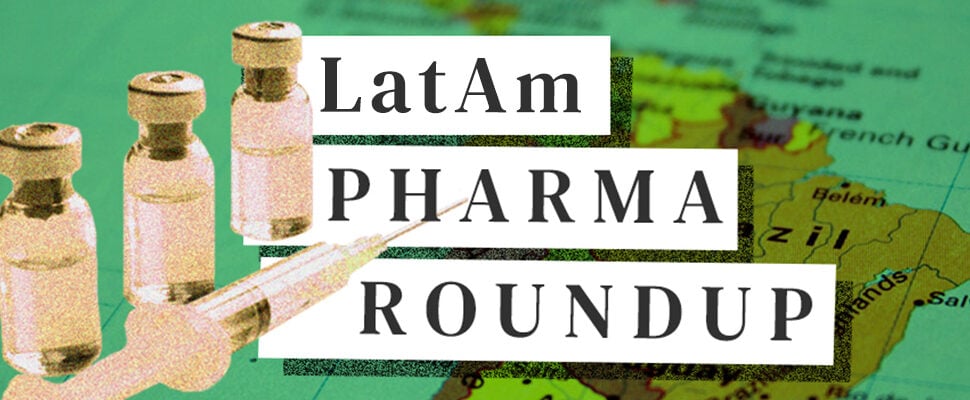A roundup of some of the latest stories from Latin American pharma and healthcare, including Sanfer’s acquisition of Columbia-based injectables manufacturer Vitalis; medicine shortages in Colombia, and Chile’s move towards universal primary health coverage with support from the World Bank.
ACON Investments Signs Definitive Agreement to Sell Vitalis to Laboratorios Sanfer (PR Newswire)
ACON Investments (“ACON”), a private equity investment firm based in Washington, D.C., announced today a definitive agreement to sell Vitalis to Mexican multinational Laboratorios Sanfer.
Vitalis is a Colombia-based manufacturer and wholesaler of injectable products used in hospitals, medical institutions and pharmacies across Latin America. The company has over 700 individual product registrations in more than 20 therapeutical areas, and a 45-year track record.
Study of Brazilian DNA contributes to equity in clinical studies (Saude Business, in Portuguese)
Access to precision medicine is still restricted in Brazil and one of the obstacles to promoting expansion is the lack of data on Brazilian DNA. According to the National Human Genome Research Institute, around 80% of the ancestral population included in genomic studies is European — so the therapies developed are more precise for this group.
Although there is a high degree of similarity between human genomes, there are significant differences that can interfere with the chances of developing the disease and, consequently, with the investigation. Therefore, studying Brazilian DNA is crucial to make clinical studies more equitable and inclusive.
National pharmaceutical companies plan to develop more affordable alternatives to Ozempic from 2024 (Globo, in Portuguese)
The Brazilian pharmaceutical industry plans to develop medicines similar to Ozempic from 2024, said the president of Grupo FarmaBrasil, Reginaldo Braga Arcuri. Generics will only be able to be sold in 2026, when the product’s patent expires. According to Arcuri, the objective is for the products to be sold “at a more affordable cost” than the aforementioned drug, currently found in the country for prices ranging between R$700 and R$1,000.
Recommended for diabetes, Ozempic is successful due to its off-label use (purpose other than the leaflet) for weight loss. No national laboratory produces medicines similar to it yet.
Medicine shortage in Colombia: Invima complies with first shock plan to evacuate procedures (AS, in Spanish)
In mid-October last year, the Administrative Court of Cundinamarca ordered Invima and the Ministry of Health to implement a series of measures to mitigate the shortage of medicines in the country. However, it was only until the end of November 2023 that the national government announced a contingency plan to address the crisis.
After the call by the Administrative Court of Cundinamarca, on Thursday 11 January the Invima announced in a report that it has managed to meet 105% of the goal of procedures to be evacuated during phase 1 (short term) during the last two months of 2023. In fact, the health agency had a target of evacuating 8,231 procedures during that time, but managed to reach the figure of 8,669.
Chile moves towards universal, resilient primary health coverage with World Bank support (World Bank)
The World Bank (WB) executive board approved today a US$200 million loan to support Chile’s universal primary care program, an essential component of the country’s efforts to reform its health system.
The Program for Universal Primary Healthcare Coverage and Resilience will improve the population’s access to quality health services, through innovative measures aimed at increasing the accessibility, resilience, and efficiency of primary care. This will contribute to consolidating primary care as the basis of the health service delivery system.
Latin America’s health systems are falling behind the rest of the world, WHO warns (The Telegraph)
Latin America’s health systems are “in pain” and falling behind the rest of the world – a result of persistent inequality, outdated technology and the consequences of climate change, the region’s director for the World Health Organization (WHO) has warned.
Populations across the continent contend with diseases considered ancient in high-income countries, from tuberculosis to trachoma, while modern treatments and vaccines for easily preventable conditions, such as HIV and cervical cancer, can be scarce.



